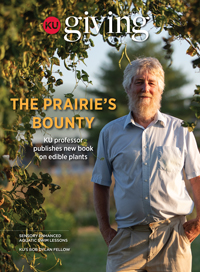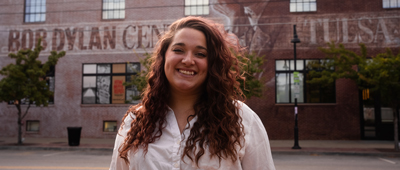KU Giving Magazine
Generating the Spark: Research Excellence Initiative
Valerie Gieler

Research Excellence Initiative fosters innovation and student growth
One of the greatest benefits of a world-class research university is the learning that happens outside of the classroom. Engaging in hands-on, real-world experiences gives students invaluable skills necessary to be successful in their careers.
Students are traveling with faculty to Africa to learn about social injustice; they are visiting archives at Oxford to find references for books they will publish; and they are working in Garden City on a film about multiple ethnicities coming together.
“When you put classroom learning together with research experience, it propels students to be career-ready and makes KU more competitive nationally,” Ward said. “When students work directly with faculty on producing stellar research and creative works, they gain a large advantage in their future careers. The majority of successful professionals point to a mentor who made the difference, and our initiative supports these long-term partnerships.”
REI funding is awarded through two programs: Competitive Awards and Accelerator Awards. Competitive Awards are open to all faculty and their students in the College and fund projects through a rigorous, peer-reviewed application process. Accelerator Awards are donor-designated funds that support specific projects that both the donor and the researcher are passionate about. In REI’s two-year existence, more than $800,000 has been awarded. Perhaps more impressive is the return on investment — initial results from REI funding have helped faculty secure more than $1.5 million in external funding.
Even with this success, the REI team is continuing to advance the program because more students want to work with faculty. “We only have been able to award about 25% of the applications due to funding,” Falicov said. “This tells us that faculty and students are very engaged with research and want to make a larger difference in our world through faculty-student partnerships.”
REI is a tangible way for donors to support research and students, with awards starting at just $500. The model allows 80% for research costs, and 20% of each award provides direct support for student participation. The leadership team is actively raising funds for the program, and the goal is to endow this initiative to support faculty-student research teams in perpetuity.
“Scientific discovery is fueled by great ideas, curiosity and a burning desire to solve problems, gain knowledge and teach others. These efforts require time, mentoring, collaboration and, for some projects, travel and unique access to source material. REI funds can provide a stimulus to explore a new hypothesis or to complete analysis of a critical data set.”
Michael Linenberger
College Advisory Board member,
KU alumnus and REI donor
Professor at the University of Washington
The art of connection
A passion for involving the community in her art and inspiration from a 13th century illuminated manuscript took KU visual art professor Maria Velasco to the town of Blanca in Spain’s Murcia region. During her artist residency at Centro Negra-AADK, Velasco created a project influenced by The Book of Games written by King Alfonso X “The Wise,” an important historical ruler in that region. The instructional book has illustrations of men, women and children of different backgrounds playing board games together.
“It’s interesting to see how people navigate this town today, because they keep to their own groups,” Velasco said. “And I thought, maybe we can plant a seed to change that.”
Velasco created a card game with guided questions for people who don’t know each other to sit and talk. “Everyone thought it was strange at first, but they warmed up to the idea,” Velasco said. “They could answer as many or as few as they wanted. The goal is making connections.”
Velasco selected seven questions and some of the answers to transfer onto fabric tiles. The tiles were hand-embroidered by volunteers, and then she constructed an “identity flag” to share the responses. A popular question was: What is a wish for the future? Some of the answers: “I would eliminate borders; have work; peace; I would unlearn.”
REI funding helped Velasco with travel and material expenses and allowed her to bring along Allison Sheldon, a graduate student in textiles who hand-dyed the fabric tiles.
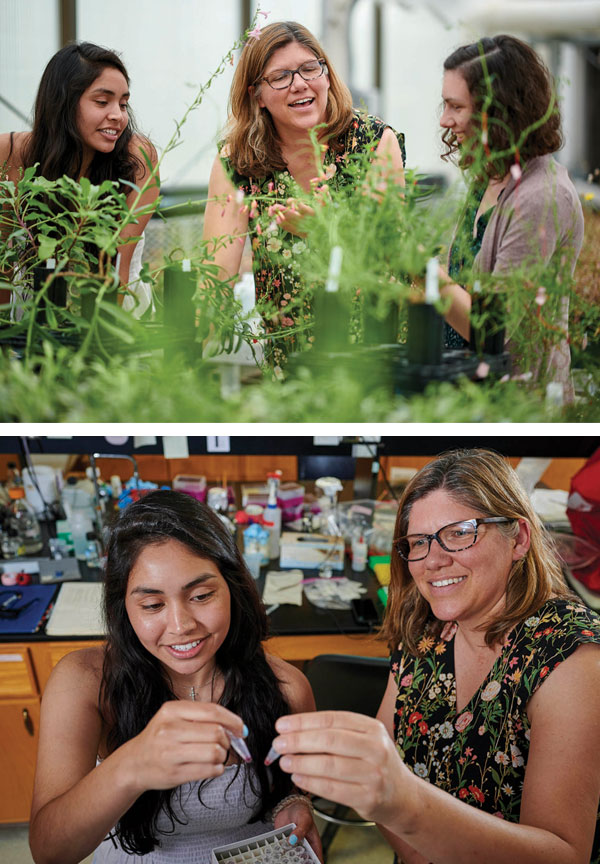
GREEN THUMBS: Professor Lena Hileman discusses the differences between plant species with purple flowers adapted for bee pollination and red ones adapted for hummingbird pollination with students Alexis Ramos and Amanda Katzer. Ramos’ project involves extracting the colors from flowers and running them on chromatography paper to compare the pigments.
Photo by Earl Richardson
Photo by Earl Richardson
For the sake of discovery
A colorful bouquet has the ability to brighten anyone’s day, but in professor Lena Hileman’s lab, the love of blooms is taken to a new level. She is an evolutionary biologist who studies how flowers adapt to support pollinators.
The findings in Hileman’s lab may eventually lead to advances in crop science or other areas, but the primary goal is just to understand how complex traits evolve. In the genus Penstemon, which has about 300 species of plants, some species are adapted to bee pollination and others are adapted to hummingbird pollination. The researchers use the differences in the flowers associated with each type to study their evolution.
Hileman has received both types of REI awards. The Competitive Award allowed her to spearhead a new direction related to flower symmetry. Hileman’s Penstemon research has funding from the National Science Foundation, however the Accelerator Award allowed her to get more students involved. “I feel strongly about mentoring the next generation of scientists, so I want to have support for student researchers,” Hileman said. “They bring passion to the lab.”
Senior Alexis Ramos is a transfer student and said the junior college she was attending didn’t have the same opportunities as KU. “I haven’t ever done research before, so the whole project excites me,” Ramos said. “I’m extracting colors from flowers right now. It’s really cool.”
Doctoral student Amanda Katzer’s project involves the nectar traits of flowers, and she often shares her knowledge of how to dissect them with community groups. “I’m really excited that I get to be involved in research because I’m gaining skills that directly relate to my career and my future,” Katzer said.
“REI has the potential to make contributions for thousands of students over time in many different fields that are important for society. I don’t think there is any better way to support a university.”
Joy Ward
Associate Dean for Research
Telling the story of America
Poet, writer and literary activist Langston Hughes is one of the central voices of the American experience. His work still resonates 50 years after his death.
“Langston Hughes is timeless,” said Randal Jelks, KU professor of American Studies and African and African American Studies. “He speaks to the issues of America: the issues of immigration, the working class and being excluded. He also speaks to our hopes and dreams.”
With Hughes’ Lawrence upbringing, creating a documentary about Hughes seemed a natural fit for a KU team. And the timing was right. The last Hughes documentary was done in 1986. Jelks formed the Dream Documentary Collective with two other KU professors for a documentary titled “I, Too, Sing America: Langston Hughes Unfurled.” He teamed with Darren Canady as writer and Academy Award winner Kevin Willmott as director for the two-part film. It focuses on how Hughes represents the American experience and how his art brought communities together.
The collective partnered with the Lawrence Arts Center and produced a teaser for the film with seed funding from the National Endowment for the Humanities (NEH). An REI award allowed the team to add Arnold Rampersad, the chief Langston Hughes biographer, to the project. The goal is to apply for a $1 million NEH grant this fall and seek additional funding to cover the film’s estimated cost of $1.5 million so they can complete production in 2020.
Students will be involved in research and grant writing for the film. Jelks hopes that film inspires people of all ages but particularly the younger generation.
“It’s exciting to have KU professors working together and gaining national exposure,” Jelks said. “I hope we make the people of Kansas and the university proud.”
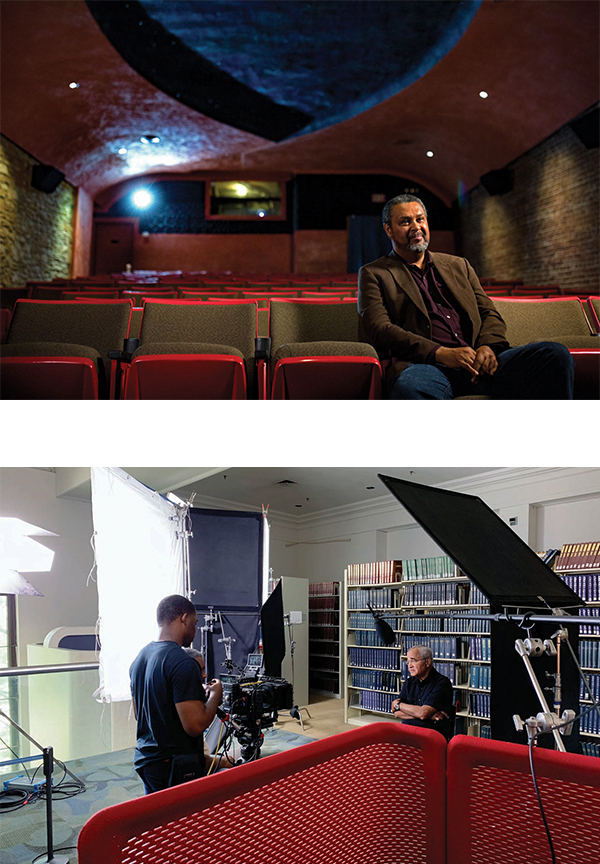
DREAM TEAM: Film executive producer Randal Jelks partnered with fellow KU professors Kevin Willmott (pictured above) and Darren Canady (pictured below) to form the Dream Documentary Collective and produce a film about Langston Hughes. Willmott and Canady recently interviewed Hughes biographer Arnold Rampersad
Photo by University of Kansas/Meg Kumin
Photo by University of Kansas/Meg Kumin
Help for student mental health
A lot of people think that once a person goes to college, they have it made. In reality, students are often stressed about adjusting to life on campus away from home. The mental health needs of students are as high as the general population, said Kelsie Forbush, associate professor of clinical psychology and director of KU’s Center for the Advancement of Research on Eating Behaviors (CARE). In a recent survey, nearly 20% of KU freshmen reported experiencing an eating disorder.
“There’s this stereotype that eating disorders affect few people and primarily young women,” Forbush said. “The truth is eating disorders are widespread on our campus.”
More research and resources are needed at KU because local treatment options are limited. Many students are referred to Kansas City clinics, and the average wait time is three months.
An REI Accelerator Award is helping CARE better predict prognosis for individuals with eating disorders as well as provide early screening, assessment and treatment progress monitoring. They are also working to provide improved treatment to KU students. A big part of that is the interactive app CARE is developing based on a proven cognitive-behavioral therapy. Tina Lai, a graduate student and CARE patient care coordinator, is working with Forbush on the app.
Students will learn to develop healthier eating habits, body image and self-esteem using behavior modification strategies through the app. Each student will be paired with a clinical psychology doctoral student who will provide one-on-one “coaching.” CARE plans to begin testing the app later this year and provide treatment on campus in the spring.
“We want to better address the needs of students who have eating disorders and to train the next generation of therapists,” Forbush said.
“One of the reasons it is so important to foster creative works through REI is to give people more opportunities to explore those big questions and social issues that can improve our world.”
Tamara Falicov
Associate Dean for Research
Be a partner in research
REI can currently only fund about 25% of award applications. That means a lot of pioneering ideas are left unexplored. A future goal is to be able to support 50% of applications. How REI awards make a difference:
- $500 purchases equipment, materials or supplies, or funds regional travel for site-specific research.
- $1,000 provides a stipend for a student to work in a research group with top-achieving faculty.
- $2,000 funds registration fees and travel to a national professional conference to present research findings and network with leaders in the field.
- $10,000 supports a team working together to produce an artistic composition or to better understand the availability of natural resources.
- $30,000 brings together an interdisciplinary group of KU professors and students to work toward solutions to some of society’s greatest challenges.
REI by the numbers
$800,000+ in private gifts
40+ donors
256 applications submitted
25% approximate success rate for Competitive Award funding
Student involvement:
145 graduate and undergraduate students
HELP IDEAS DEVELOP
To be part of advancing research in the College, contact Dan Simon at 785-832-7378 or email.
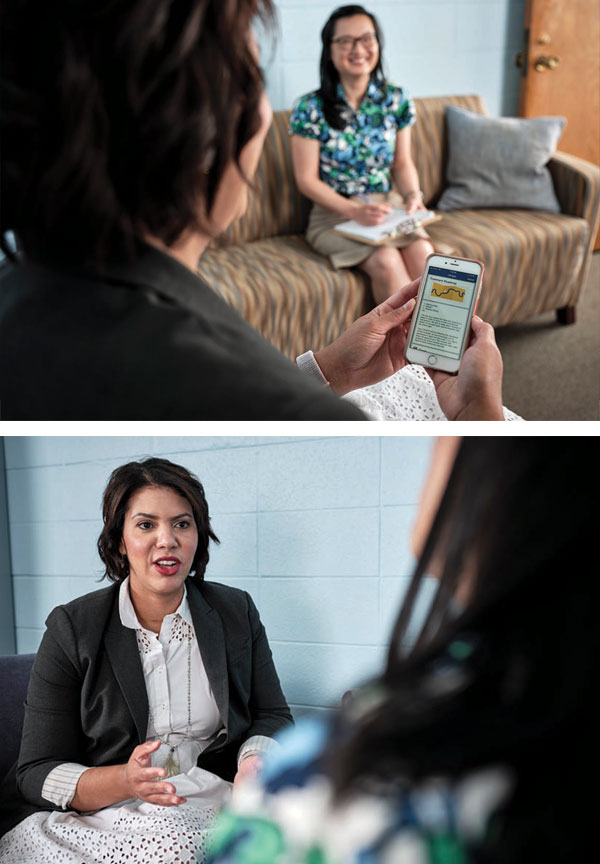
A NEW TOOL: Students with eating disorders will soon be able to receive help through a new app being developed by CARE Director Kelsie Forbush and Tina Lai.
Photo by Earl Richardson
Photo by Earl Richardson
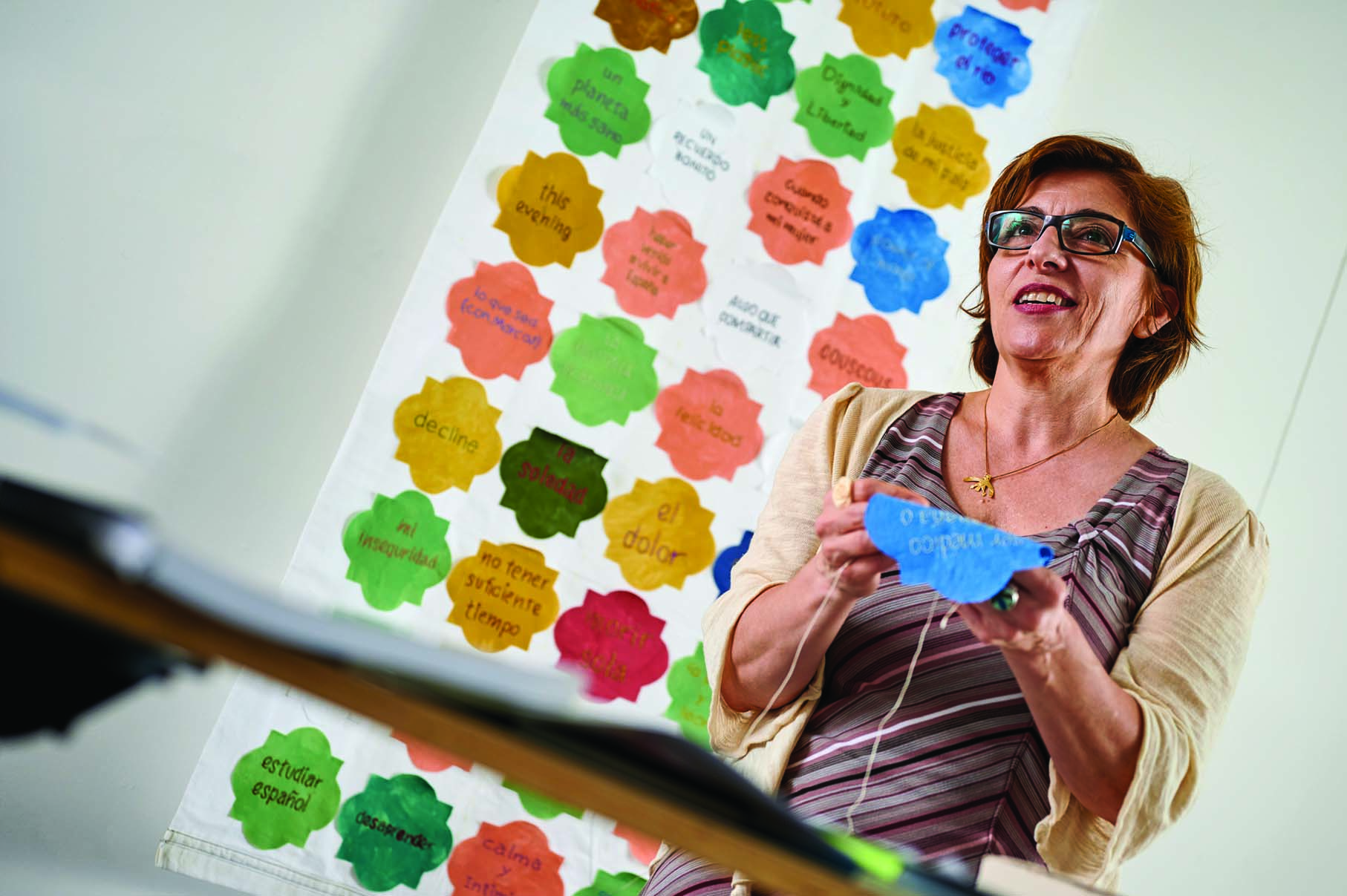
Photo by Earl Richardson
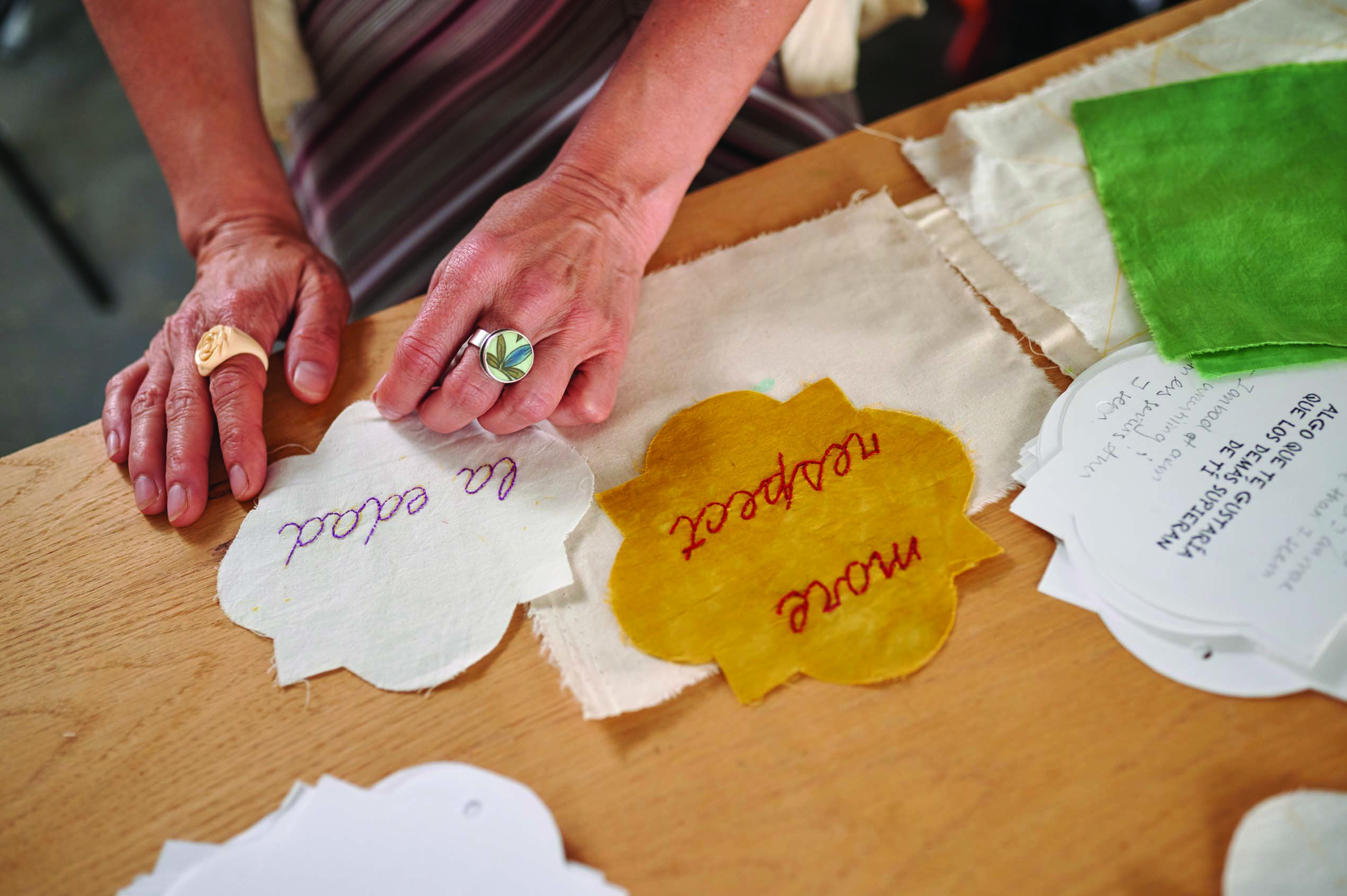
Photo by Earl Richardson
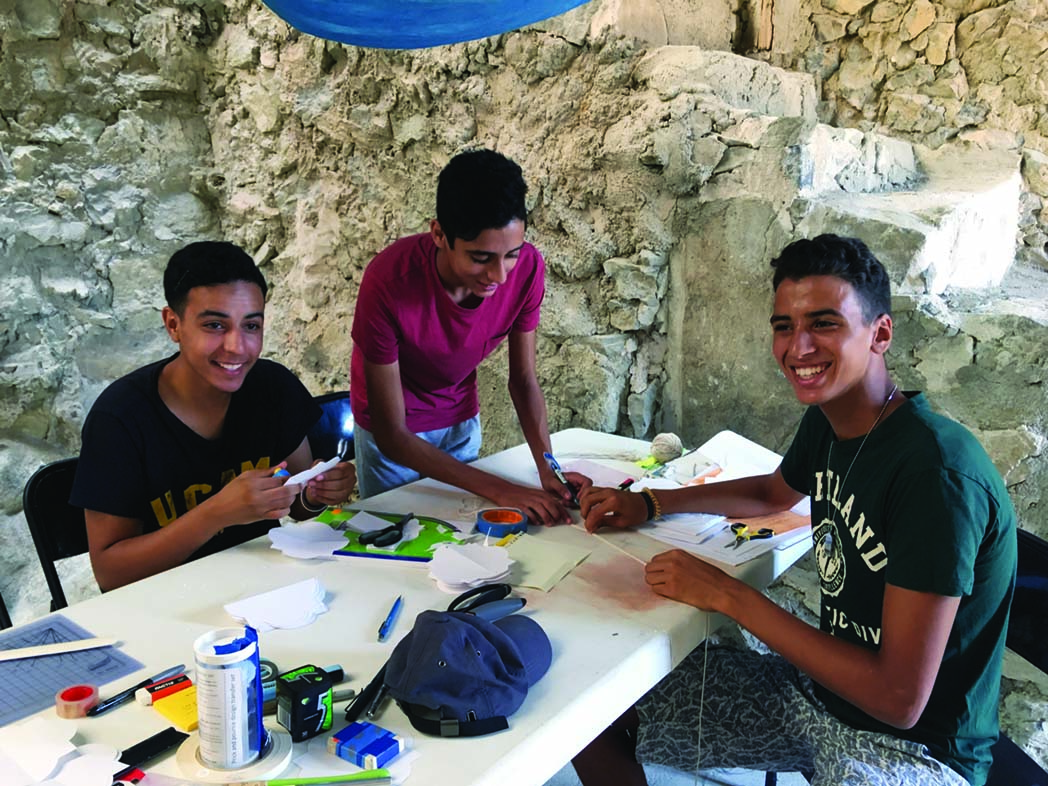
Photo by Maria Velasco
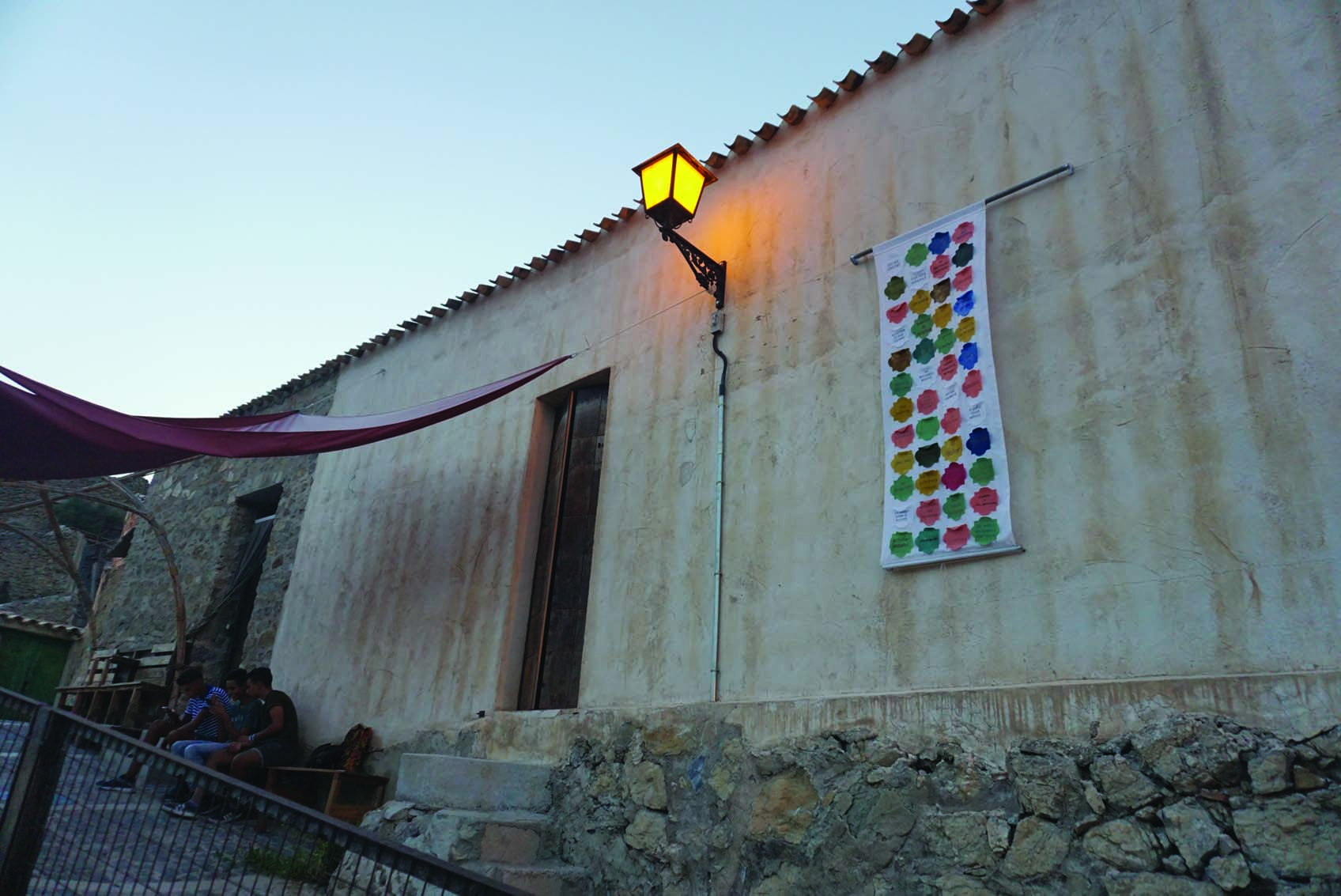
Photo by Maria Velasco

